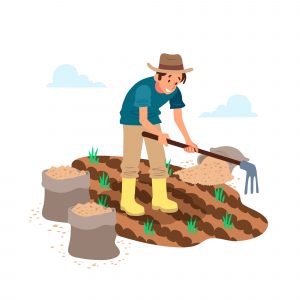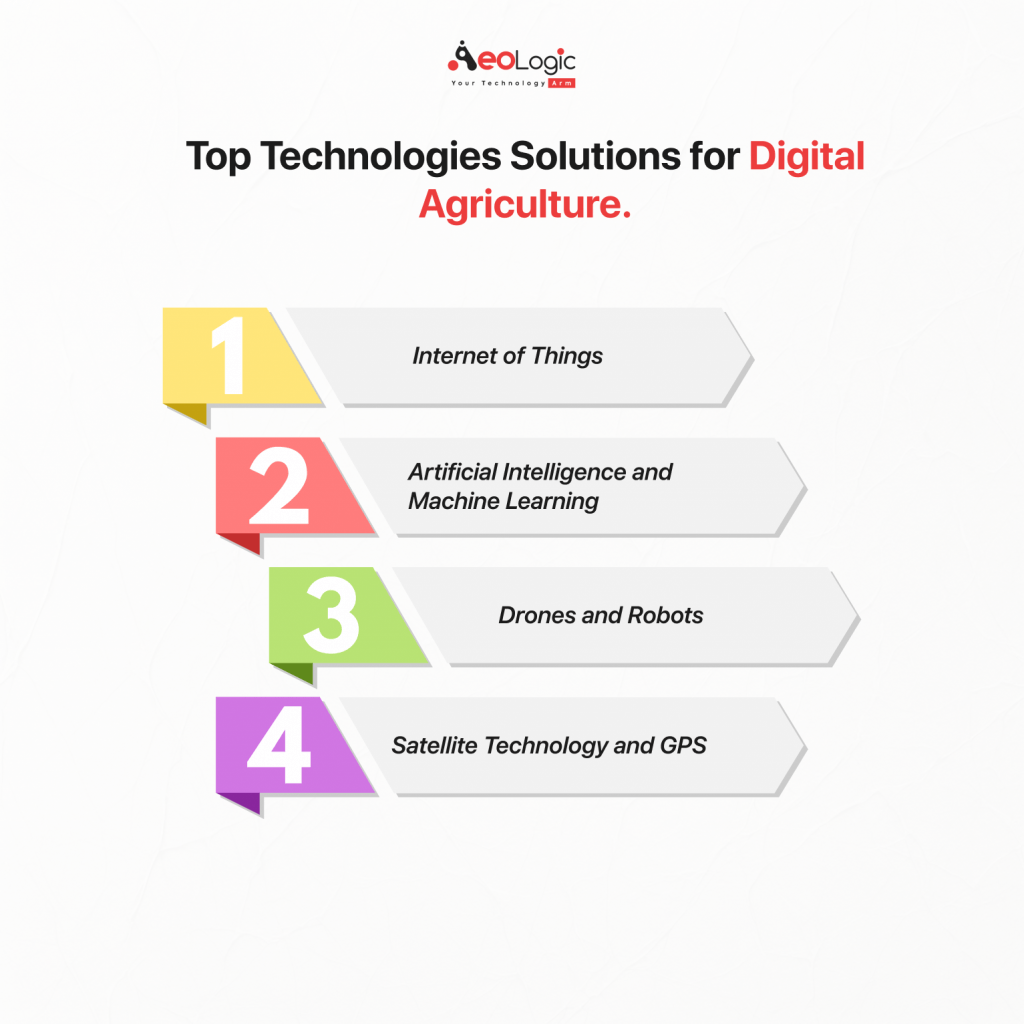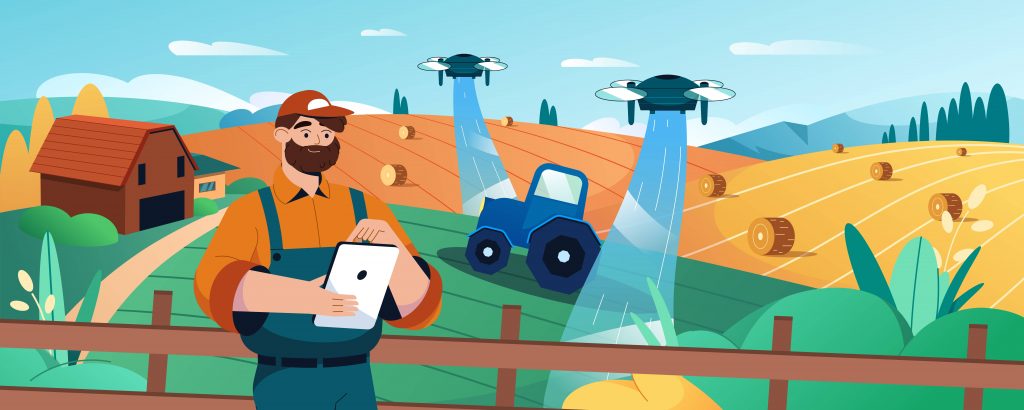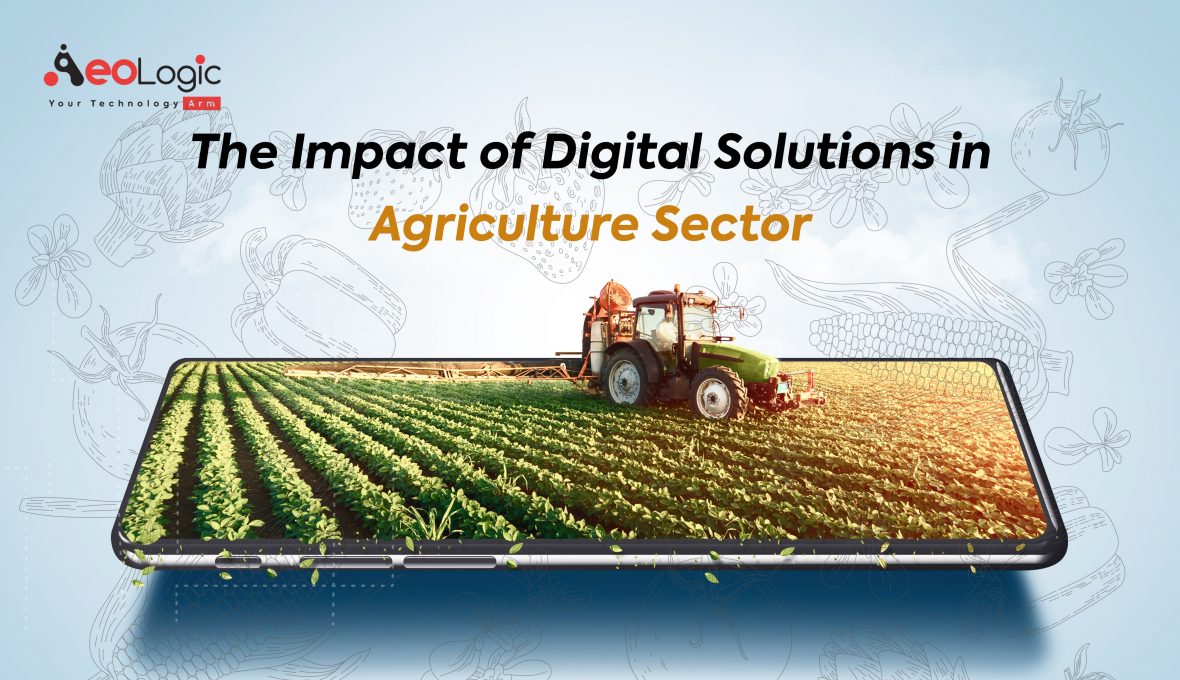I bet you’ve heard about the role of digital solutions in agriculture sector. In fact, you’ve probably come across this term more times than you can count. And, if you’re like me, you might have wondered, “What exactly does it mean?”
Let’s dissect this today. We’ll delve deep into the subject and see how digital solutions are revolutionizing the world of agriculture and farming.
What is Digital Agriculture?

Digital agriculture, often referred to as ‘smart farming’ or ‘precision agriculture,’ is an innovative approach to farming that uses modern technologies to enhance agricultural practices.
The idea is simple: instead of relying solely on traditional methods, we integrate digital technologies into the mix. This allows us to farm more efficiently and sustainably, leading to higher productivity and minimal waste.

So, what technologies are we talking about? Here’s a glimpse:
- Internet of Things (IoT): IoT devices such as sensors and smart irrigation systems are used to monitor and control various farming activities. They provide real-time data on soil moisture, temperature, and nutrient levels, enabling farmers to make informed decisions.
- Artificial Intelligence (AI) and Machine Learning (ML): AI and ML can analyze data from various sources, including satellite imagery, weather forecasts, and IoT devices. This helps predict crop yields, identify disease outbreaks, and optimize farming operations.
- Drones and Robots: Drones are used for aerial surveys of fields, pinpointing areas that need attention. Robots can assist in tasks like planting, weeding, and harvesting, reducing labor and increasing efficiency.
- Satellite Technology and GPS: These provide accurate field mapping, guide machinery, and enable precision farming.
By integrating these technologies into farming, digital agriculture is transforming the way we produce food. It ensures that the role of digital solutions in the agriculture sector is pivotal, driving the industry toward a sustainable, productive, and resilient future.
Also Read: Use of Modern Technology in Agriculture Sector
What’s the Buzz All About?
First, let’s look at the numbers. As per a report by MarketsandMarkets, the global digital agriculture market is expected to grow from $5.6 billion in 2020 to $6.2 billion by 2025 (source: MarketsandMarkets). That’s a growth rate of over 10%! Clearly, there’s more to the “Role of Digital Solutions in Agriculture Sector” than meets the eye.
These solutions include technologies like IoT, AI, drones, and precision agriculture tools. They’re changing the face of farming, making it smarter, more efficient, and much more productive.
The Role of Digital Solutions in Agriculture Sector: A Closer Look

Now that you know the ‘what,’ it’s time for the ‘how.’ How are these digital solutions making a difference in the agricultural sector?
Enhanced Efficiency and Productivity
When you think about farming, the image of a farmer toiling away under the sun probably comes to your mind. But with the help of digital solutions, this is changing dramatically.
- Precision Farming: Through precision farming, farmers can manage their fields with an accuracy that was unimaginable just a decade ago. GPS systems help guide machinery and optimize field routes, reducing fuel consumption and maximizing efficiency.
- IoT in Agriculture: Internet of Things (IoT) devices monitor soil moisture, temperature, and nutrient levels in real-time. This data enables farmers to make informed decisions about watering, fertilizing, and harvesting crops.
- Drones: Drones take the efficiency of farming to a whole new level. They monitor crop health, spread fertilizers, and even assist in planting.
Combatting Climate Change and Sustainability Issues
The role of digital solutions in the agriculture sector isn’t limited to productivity alone. These technologies are also crucial in making agriculture more sustainable and resilient to climate change.
- Climate-Smart Agriculture: Digital tools help in the implementation of climate-smart agricultural practices. Predictive analytics can forecast weather patterns and suggest the best practices to mitigate the effects of climate change.
- Sustainable Resource Use: Smart irrigation systems use water optimally, reducing wastage. Similarly, precision farming allows for targeted use of fertilizers and pesticides, minimizing their environmental impact.
Also Read: How AI is Transforming the Agriculture Industry
The Future of Farming: Embracing Digital Solutions
So, what does the future hold for the agriculture sector? Given the current trajectory, it’s safe to say that the role of digital solutions in the agriculture sector will only increase.
Digital solutions are driving a revolution in the agriculture sector. As we adapt and learn, the results are getting better and better. From precision farming to IoT-based monitoring systems, the technology is getting smarter. And as it does, it brings us a step closer to sustainable and resilient agriculture.
Overcoming Challenges in Agriculture with Digital Solutions
While the promise of digital agriculture is exciting, it’s essential to remember that the agriculture sector faces significant challenges that these digital solutions are designed to combat.
Addressing Food Security
As the global population continues to grow (expected to reach 9.7 billion by 2050, according to the United Nations), the demand for food will rise too. Meeting this demand is a significant challenge for the agriculture sector. Digital solutions, by enhancing efficiency and productivity, play a crucial role in achieving this goal.
Adapting to Climate Change
Climate change is one of the greatest threats to agriculture. Changing weather patterns, increasing temperatures, and erratic rainfall patterns pose significant risks to crop productivity. Digital agriculture helps farmers adapt to these changes. Predictive analytics can forecast weather changes, and data-driven farming practices can mitigate their effects.
Promoting Sustainable Practices
Sustainability is no longer a choice; it’s a necessity. The agriculture sector is under immense pressure to reduce its environmental impact. This is where the role of digital solutions in the agriculture sector really shines. Technologies like precision farming promote the targeted use of resources, reducing wastage and minimizing the environmental impact.
Through these solutions, we are not just responding to the challenges facing the agriculture sector but actively shaping its future. Digital solutions are transforming agriculture into a more efficient, productive, and sustainable industry, and in the process, ensuring food security for future generations.
Also Read: How Technology Is Boosting the Agriculture Industry
Wrapping Up
Yes, farming is changing, and it’s changing for the better. The role of digital solutions in the agriculture sector is proving to be a game-changer. As technology continues to evolve and permeate every aspect of our lives, it’s clear that agriculture won’t be left behind.
We’ve seen the impact it’s having. The efficiency, the productivity, the move towards more sustainable practices – it’s all thanks to the digital revolution in agriculture. And this, my friends, is just the beginning. So, the next time you hear about the “Role of Digital Solutions in Agriculture Sector”, you’ll know what it means, and more importantly, why it matters.
If you have any concerns about agricultural technology, you can contact Aeologic Technologies!
Frequently Asked Questions
As we discuss the role of digital solutions in the agriculture sector, some questions might arise. Here are answers to a couple of the most frequently asked ones:
Is Digital Agriculture Expensive?
While implementing digital solutions in agriculture can have an upfront cost, it is essential to consider the long-term benefits. These include increased productivity, efficiency, and profitability, which often outweigh the initial investment. Moreover, various affordable solutions have been developed, like mobile apps and low-cost sensors, making digital agriculture accessible to small-scale farmers as well.
How Can I Get Started with Digital Agriculture?
The first step is to identify the specific needs of your farm and find digital solutions that address them. This could involve using a soil moisture sensor to optimize irrigation, adopting precision farming to use resources efficiently, or leveraging a mobile app to access market information. Various online platforms and local agricultural extension services provide guidance and support to farmers venturing into digital agriculture. Remember, the goal is to make your farm more efficient and sustainable, not just to use technology for the sake of it.






